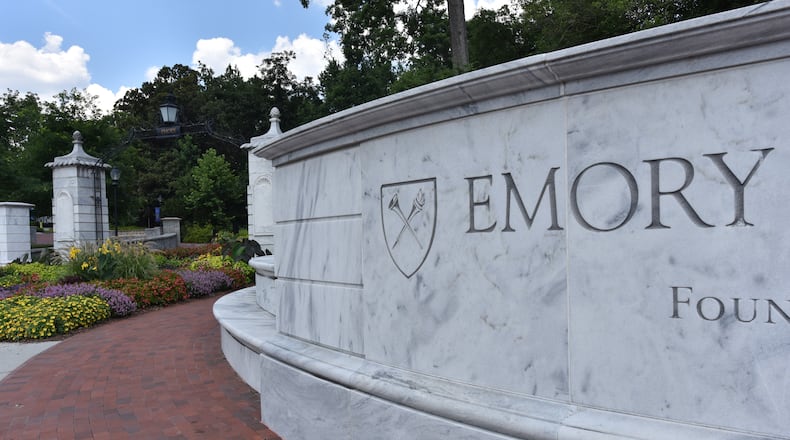State Rep. Earl Ehrhart's proposal to cut off funding to Georgia colleges that declare they will defy President Donald Trump's immigration policy is moving forward, even after Emory University backed off a decision to declare itself a "sanctuary campus."
Incoming Emory president Claire Sterk told The Atlanta Journal-Constitution such a declaration is only "symbolically important," warning that it could hurt the private school's research and education funding in a Trump White House.
Ehrhart, one of the longest-serving Republicans in Georgia's House, introduced legislation to ban colleges from receiving state funds if they aren't complying with state and federal law after Emory and other colleges flirted with the "sanctuary" declaration. His House Bill 37 was approved Wednesday by the chamber's Higher Education Committee, and it could reach a full House vote this month.
Students and faculty from more than 100 universities have called on their administrators to declare themselves sanctuaries after Trump's election, partly in hopes of helping "Dreamer" students who were granted a temporary reprieve from the threat of deportation by the Obama administration.
Trump has taken a hardline approach to illegal immigration, vowing to build a wall and crackdown on the estimated 11 million people in the country illegally.
And Emory’s decision is only the latest sign that a Trump executive order to strip federal grant funding from cities that defy federal immigration rules is having a chilling effect.
Atlanta Mayor Kasim Reed this week said the city would be a welcoming one for immigrants and other newcomers, but he said he wouldn’t declare it a “sanctuary.”
“What I’m going to do is continue to meet the standards we put forth as a welcoming city,” said Reed. “I’m not going to shift from our approach … The work we’ve done to embrace refugees and immigrants is among the most forward-thinking approaches in the nation.”
The move could cost Atlanta and other big cities huge sums of money. Even Emory University, a private institution, gets tens of millions in state dollars each year for health services and tuition assistance grants.
Sterk, who will be installed as Emory’s president next week, seems to have confronted a lesson that other powerful college presidents have already learned: Ehrhart is more than ready to challenge them.
He clashed with Georgia Tech President Bud Peterson last year over his school's handling of the sexual complaint process – and legislation he's backing this year to curb the powers of school judiciary agencies also could soon reach a House vote.
And he urged Kennesaw State University's leaders to remove an art exhibit on the AIDS epidemic that he called an "insult for the sake of making a political statement."
About the Author
The Latest
Featured



